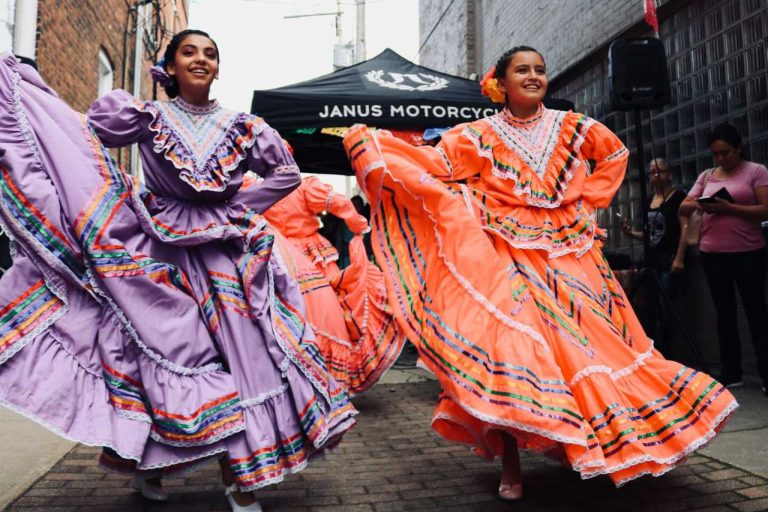
Insanely Romantic Love Poems in Spanish
DATE:
Spanish love poems are literary works that express the deep emotions of romantic love, typically shared between two people. They beautifully capture the feelings one has for another, and the dedication involved in crafting such written pieces is truly admirable.
The structure of these poems is unique, often divided into verses that feature assonant or consonant rhymes. Spanish, along with English, ranks as the third most romantic language in the world—just behind Italian and French. Throughout the history of Hispanic culture, the poetic compositions have yielded impressive results, thanks to the large number of exceptional writers and poets.
Given this rich tradition, there’s a wealth of knowledge to be gained from love poems translated into the Spanish language. At SpanishVIP, we want to share more about these beautiful works, showcasing examples from native Spanish speakers alongside their English translations, and diving into the structure and vocabulary that make these poems so captivating.

Most used vocabulary in Spanish love poems
|
English |
Spanish |
|---|---|
|
Posar |
To pose |
|
Verso |
Verse |
|
Destello |
Flash |
|
Abismo |
Abyss |
|
Fantasía |
Fantasy |
|
Agonía |
Agony |
|
Contorno |
Outline |
|
Expression |
Expression |
|
Reflejo |
Reflection |
|
Palacio |
Palace |
|
En vano |
In vain |
|
Ironía |
Irony |
|
Voluble |
Fickle |
|
Menosprecio |
Disparagement |
|
Sideral |
Sidereal |
|
Postrera |
Last |
|
Lumbrera |
Port |
|
Azucena |
Lily |
|
Lazo |
Ribbon |
DID YOU KNOW…?
Among the greatest Spanish-speaking poets are Vicente Huidobro, Pablo Neruda, Jaime Torres Bodet, Jorge Luis Borges, and Manuel Bandeira.

The 5 Best Romantic Spanish Poems
1. “Poema 20” by Pablo Neruda
Spanish:
“Puedo escribir los versos más tristes esta noche.
Escribir, por ejemplo: ‘La noche está estrellada,
y tiritan, azules, los astros, a lo lejos.’
El viento de la noche gira en el cielo y canta.”
English:
“I can write the saddest lines tonight.
Write, for example: ‘The night is starry,
and the stars are blue and shiver in the distance.’
The night wind revolves in the sky and sings.”
2. “Te quiero” by Mario Benedetti
Spanish:
“Si te quiero es porque sos
mi amor, mi cómplice y todo
y en la calle, codo a codo,
somos mucho más que dos.”
English:
“If I love you, it’s because you are
my love, my accomplice, and everything
and in the street, arm in arm,
we are much more than two.”
3. “Rima LIII” by Gustavo Adolfo Bécquer
Spanish:
“Volverán las oscuras golondrinas
en tu balcón sus nidos a colgar,
y, nuevamente, con el ala a sus cristales
jugando llamarán.”
English:
“The dark swallows will return
to hang their nests on your balcony,
and once again, with their wings beating
against the window panes, they will call out.”
4. “Amor constante más allá de la muerte” by Francisco de Quevedo
Spanish:
“Cerrar podrá mis ojos la postrera
sombra que me llevare el blanco día,
y podrá desatar esta alma mía
hora, a su afán ansioso lisonjera.”
English:
“My eyes can close, the final
shadow that the white day brings,
and my soul will be able to free itself
in the hour, to its anxious desire flattering.”
5. “Soneto V” by Garcilaso de la Vega
Spanish:
“Escrito está en mi alma vuestro gesto,
y cuanto yo escribir de vos deseo;
vos sola lo escribisteis, yo lo leo
tan solo, que aun de vos me guardo en esto.”
English:
“Your expression is written in my soul,
and all that I wish to write of you;
you alone wrote it, and I read it
so alone that I even keep from you in this.”

6. “Contigo” by Luis Cernuda
Spanish:
“Mi tierra, mi gente,
mi amor, te los di.
Todo lo que era mío
viene contigo.”
English:
“My land, my people,
my love, I gave them to you.
Everything that was mine
comes with you.”
7. “Amor eterno” by Gustavo Adolfo Bécquer
Spanish:
“Podrá nublarse el sol eternamente;
podrá secarse en un instante el mar;
podrá romperse el eje de la tierra
como un débil cristal.
¡Todo sucederá! Podrá la muerte
cubrirme con su fúnebre crespón;
pero jamás en mí podrá apagarse
la llama de tu amor.”
English:
“The sun may cloud over forever;
the sea may dry up in an instant;
the axis of the earth may break
like a fragile crystal.
Everything will happen! Death may cover me
with its funeral shroud;
but never will the flame of your love
be extinguished in me.”
8. “Soneto XXIII” by Garcilaso de la Vega
Spanish:
“En tanto que de rosa y azucena
se muestra la color en vuestro gesto,
y que vuestro mirar ardiente, honesto,
con clara luz la tempestad serena;”
English:
“In the time when the rose and lily
show forth the color in your face,
and your bright and honest gaze,
with its clear light, calms the storm;”
9. “Amor mío, si muero y tú no mueres” by Pablo Neruda
Spanish:
“Amor mío, si muero y tú no mueres,
amor mío, si mueres y no muero,
no demos al dolor más territorio:
no hay extensión como la que vivimos.”
English:
“My love, if I die and you don’t die,
my love, if you die and I don’t die,
let’s not give grief more territory:
there is no expanse like the one we lived.”
10. “Ya eres mía. Reposa con tu sueño en mi sueño” by Pablo Neruda
Spanish:
“Ya eres mía. Reposa con tu sueño en mi sueño.
Amor, dolor, trabajos, deben dormir ahora.
Gira la noche sobre sus invisibles ruedas
y junto a ti soy un sueño solamente.”
English:
“Now you are mine. Rest with your dream in my dream.
Love, pain, struggles, must sleep now.
The night turns on its invisible wheels,
and beside you, I am only a dream.”
QUICK NOTE…
If you want to write a love poem in Spanish, take into account the intonation and stress of the words that rhyme. Not always ending in the same letter or vowel means that they sound the same.
An example that rhymes are:
La noche envejeció
Y mi alma se estremeció
(The night grew old
And my soul trembled)
Both final words of each verse ending in “ió”, with a marked accentuation, which is why they rhyme.
An example that does not rhyme is
El día se oscureció
En un diferente horario
(The day darkened
At a different time)
As you can see, although both ends in “io”, the last word of the first verse has the marked stress on the “o”, while the last word of the second verse does not, and its implicit stress is on the syllable “ra”. For this reason, it is not a rhyme unless you add another verse that rhymes with either of the first two.
Most Influential Spanish-speaking poets
These love writers and poets are famous for writing love poems in this language. Look what they are and where they were from:
|
Poet |
Nationality |
|---|---|
|
Pablo Neruda | |
|
Gustavo Adolfo Bécquer | |
|
Octavio Paz | |
|
Rosalía de Castro |
Spain |
|
Pedro Salinas |
Spain |
|
Gioconda Belli |
Nicaragua |
|
Rubén Darío |
Nicaragua |
|
Mario Benedetti | |
|
Gabriel García Marquez |
DID YOU KNOW…?
Gonzalo de Berceo was the first poet in the history of the Spanish language of which there is information. He was born in Berceo, a municipality that is located in La Rioja, Spain, approximately in the year 1190 CE.

Wrapping up
these was just a glimpse of the beauty of the romantic Spanish poems. They consist of different forms of writing and there are multiple Hispanic poets throughout history who speak of love (basically all of them) whose work you can read to expand your Spanish vocabulary.
If you are interested in learning more about the Spanish language and everything related to it, we want to give you the opportunity to have a free Spanish lesson or access a 7-day free trial of our group classes to study and start an excellent training process at SpanishVIP.











